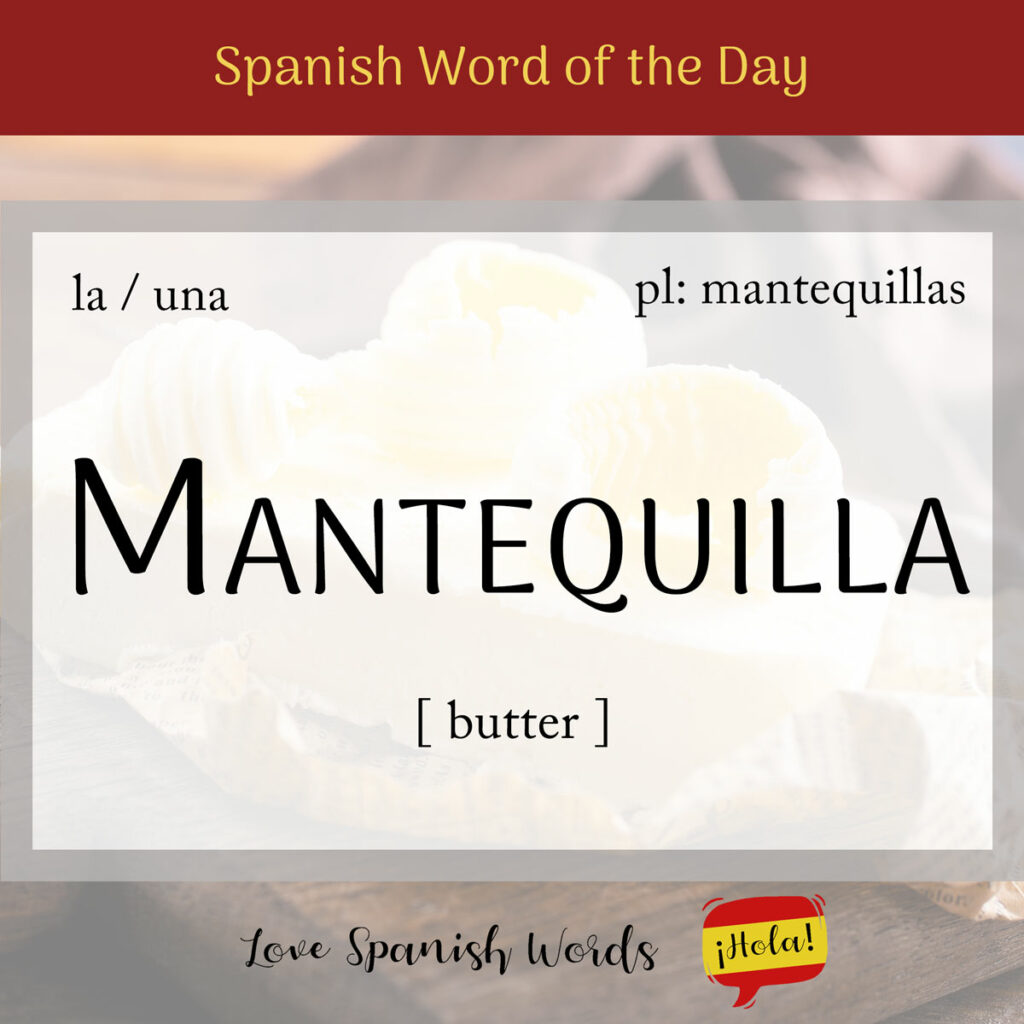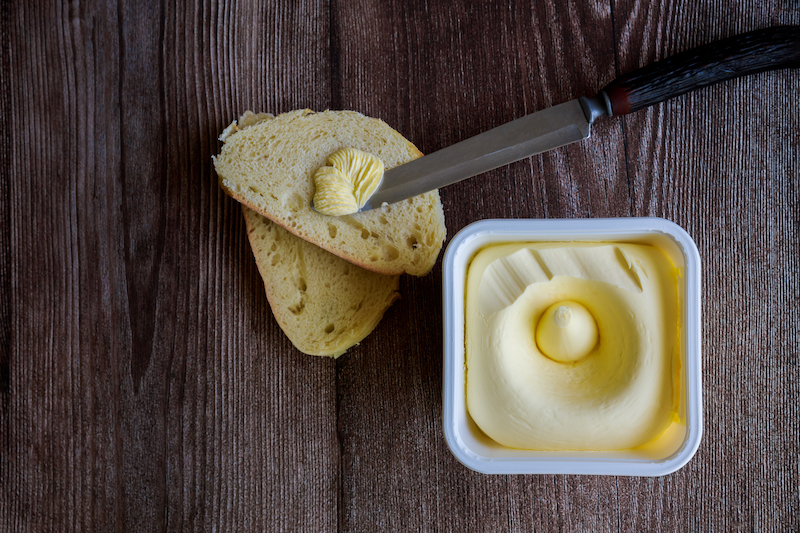When you eat a piece of toast with honey or jam, do you tend to eat it plain or do you enjoy untar mantequilla (spreading butter) on top to add some extra flavour? I can usually live without it, but there are people who can’t imagine eating toast without butter!
Latin American Pronunciation
European Pronunciation

Mantequilla is the diminutive form of manteca, which is the word for lard in Spanish (manteca + -illa). While the exact etymology of manteca is uncertain, it is thought to derive from the Latin mantica.
Since it is a feminine noun, it takes the following definite and indefinite articles:
- la mantequilla = the butter
- una mantequillas = a butter
- las mantequilla = the butters
- unas mantequillas = some butters

In some Spanish speaking countries, such as Argentina, manteca is the preferred term for both butter and lard. In Honduras, mantequilla is what is called crema (cream) in other countries, and in Uruguay, manteca and mantequilla are considered synonyms.
Me gusta comer pan con mantequilla.
I like eating bread and butter.
In addition to the kind of butter made from lard, there are other kinds of butter people enjoy eating including mantequilla de cacahuete/maní (peanut butter), mantequilla de cacao (cocoa butter) and mantequilla de almendras (almond butter).
The verb to butter can be expressed using the verb untar (to spread).
Unta un poco de mantequilla sobre la tostada mientras aún esté caliente.
Spread some butter on the toast while it’s still warm.
The phrase de mantequilla (of butter) refers figuratively to someone who is psychologically or physically weak or excessively sensitive.

Idiomatic expressions featuring ‘mantequilla’
Tener manos de mantequilla
Literal translation: to have hands of butter
English meaning: butterfingers
Cortar algo como si fuera mantequilla
Literal translation: to cut something like butter
English meaning: to cut through something like a hot knife through butter

